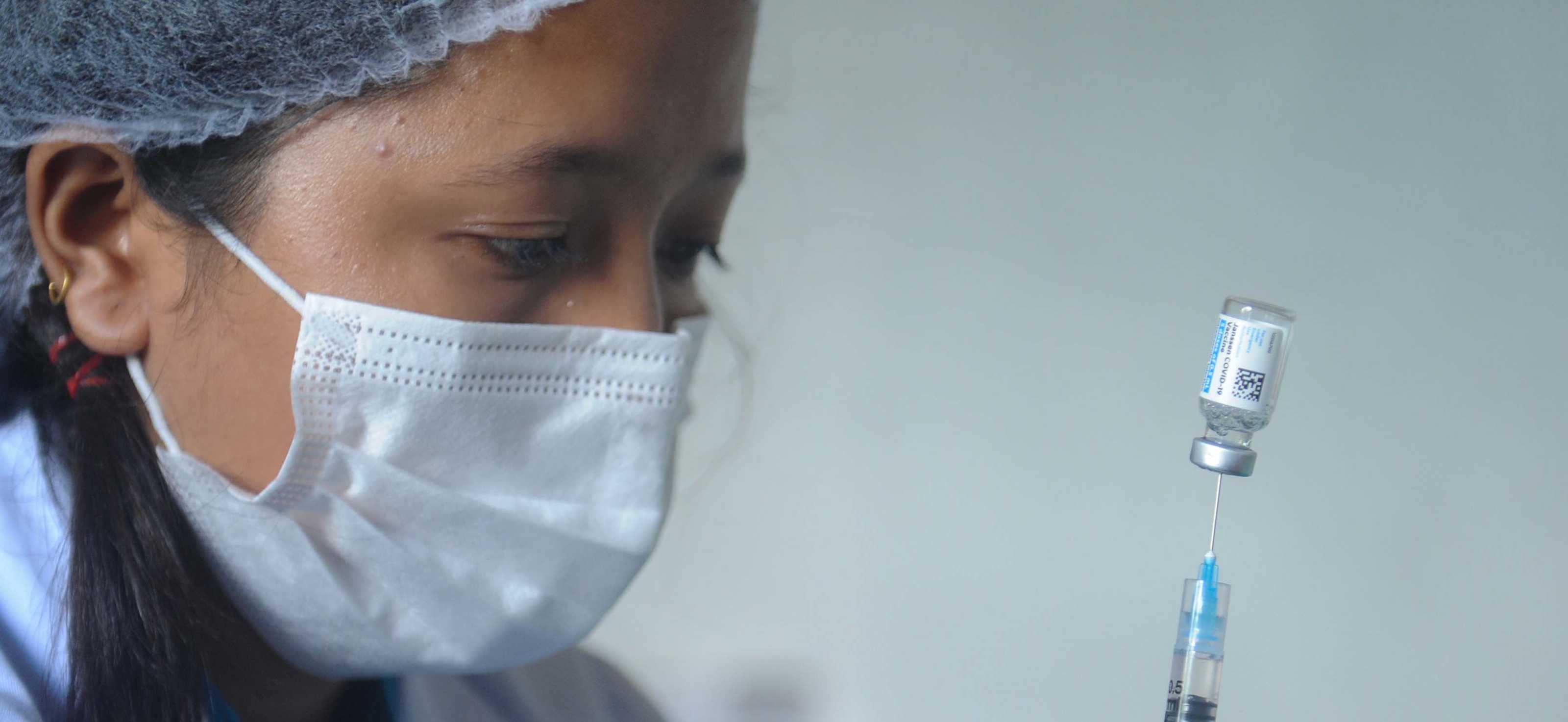Manjita Ghale Magar prepares to administer another COVID-19 vaccine at a clinic in the village of Tribeni, Nepal. For Manjita, and other health care workers who live and work in this poor, rural area, it is a welcomed responsibility as COVID-19 cases are rising again.
The most recent spike, in May 2021, overwhelmed the country's health system. Hospitals ran out of beds, oxygen and ventilators. Now, just as the system is beginning to stabilize, cases are on the rise again, and most of the population remains unvaccinated.
Not enough vaccines to go around
Only about 13% of Nepal's population has been fully vaccinated against COVID-19, and that percentage is lower in rural areas. The lag is largely because there haven't been enough vaccines. Shipments coming from India were stopped when the country got hit with a devastating wave last April. As vaccines finally began arriving, doses went to urban areas first.
That’s where you come in.
Corus World Health is committed to putting health in reach for everyone, everywhere — and especially vulnerable people in the hardest to reach places. And thanks to people like you, we’re getting COVID vaccines to more than 20 rural communities, many of which are located along the India/Nepal border, where the risk of infection is dangerously high.
We're working to safely deliver vaccine doses to 100,000 women and men. We're leading the procurement of insulated boxes, so vaccines can be kept at the appropriate temperature while they are transported to clinics. We're also arranging for vehicles to deliver the vaccine to health centers.
And we're working within communities to coordinate and provide transportation for those who need it, including the elderly and people with disabilities. Most often, this means driving them to and from the nearest vaccine site.
Because of your generosity, Manjita and other health workers like her finally have vaccines to give. In the coming weeks, they expect to spend their time preventing COVID-19 instead of watching it spread.

